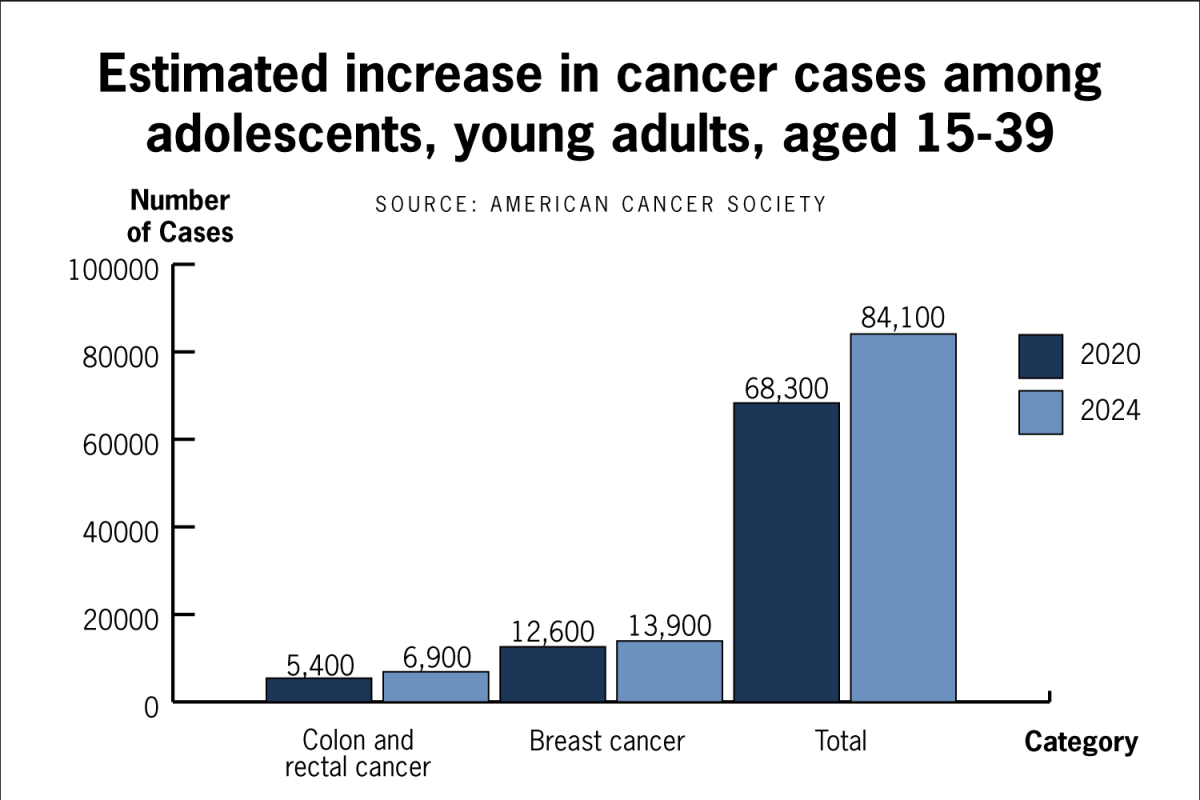Younger Americans are being diagnosed with certain types of cancer at higher rates, according to a study published on Jan. 17 by the American Cancer Society.
Adults under 50 are receiving cancer diagnoses at higher rates despite a decline in cancer mortality, according to the study. Among adolescents and young adults aged 15-39, the most common cancers include colorectal cancer, thyroid cancer and breast cancer.
The researchers are not sure of the exact reasons behind this rising trend. In colorectal cancer cases, the leading cause of cancer death in men and second in women, lifestyle factors may play a large role, according to the study.
“There are a multitude of variables that seem to cause this increased incidence of colon cancer,” said Stefano Tiziani, associate professor of nutritional sciences. “Inflammation is one major factor (due to) the fact that we abuse ultra-processed foods.”
Tiziani, who is affiliated with the departments of Pediatrics and Oncology at Dell Medical School, said it is important for young people to reduce their consumption of meat and highly processed foods, which are associated with carcinogenic compounds.
Young people should increase their fiber and fruit intake, which are high in antioxidants and may help prevent colon cancer, Tiziani said.
“Nutrition (from) antioxidants, phytochemicals and exercise on a daily basis is the most important idea that we can suggest to our students and our community,” Tiziani said.
The study also linked obesity among younger populations with increased cancer cases, said Dr. Anish Meerasahib, an oncologist and medical volunteer with the American Cancer Society.
“(One thing that) is really striking is the younger population (is) getting overweight and obese. They have less physical activity as opposed to their counterparts when they were 20 years younger,” said Meerasahib. “It makes complete sense that if your body is inflamed if you’re obese … (it) cannot fight off a bad mutation.”
Smoking also plays a role in adolescent and young adult cancers. Though smoking rates have decreased overall, smoking has become increasingly popular with younger people due to new products like electronic cigarettes, Meerasahib said.
Meerasahib said he strongly supports cancer screenings, especially if an individual has a family history of cancer.
“We’re doing a great job in treating cancer, curing cancer and detecting cancer, but prevention is still lacking,” Meerasahib said. “The prevention of cancer is where we really need to make big strides.”
Editor’s Note: A previous version of this story said young Americans were getting cancer at younger ages, as opposed to young Americans getting cancer diagnoses at higher rates. The first two paragraphs and article title have been updated to reflect this change. The Texan regrets this error.














